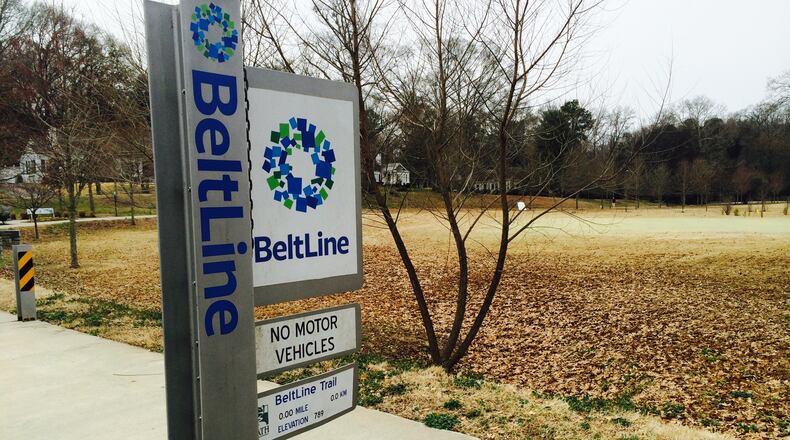A report from grassroots advocates the Housing Justice League shows evidence that the poor are leaving Atlanta Beltline neighborhoods, even as existing residents say they want to stay.
The report, released late last week, has its limitations. It's not a formal, peer-reviewed study, although its authors did consult top experts as they formed the report's methodology. Also, a majority of its in-depth interviewees are members of the group's network. But it does offer worthwhile data points and context on the rapid change that is taking place as the Beltline, one of the nation's most ambitious redevelopment projects, comes to life -- without much of the affordable housing that its backers promised.
For instance:
- The number of very-low income people making $25,000 a year or lower has dropped in every neighborhood along the Beltline from Memorial Drive to Hill Street, a swath that includes Grant Park and Ormewood Park, according to U.S. Census data the authors analyzed.
- All neighborhoods between I-20 and the Beltline corridor saw a drop in their shares of non-white homeowners.
Its authors cite the historically black Old Fourth Ward neighborhood as a "cautionary tale" of rising income inequality and drastic shifts in racial makeup:
Residents of neighborhoods along the southern stretch of the Beltline told researchers that while they may want grocery stores, parks and other advantages that new development may bring, they fear that higher housing prices will push them out of their homes.
What's more, they don't want to leave. Renters and homeowners alike value the friendships, social networks and resources that their neighborhoods provide.
If other data bears out this Housing Justice League finding, it would align with themes raised in research on another historic displacement of the poor in Atlanta: The razing of the city's housing projects in the 1990s and early 2000s to build mixed-income apartments.
Researchers found that former public housing residents stayed close to their old neighborhoods, moving only three miles on average. These residents appear to have been reluctant to move far from public transit and their social support networks of friends and relatives. Most remained within city limits.
And so Atlanta finds itself reckoning with a familiar dilemma. In decades past, civic leaders saw Atlanta's public housing projects as blighted places in dire need of redevelopment. Today, many feel the same way about the Beltline's low-income communities.
But to residents then and now, there's no place like home. And with an affordable housing crisis in full swing in Atlanta, it remains to be seen how close low-income and working class residents will be able to stay.
Note: This post was updated Oct. 19, 2017 to reflect that one third of the report's in-depth interviewees, not survey respondents, are members of the Housing Justice League's network.
About the Author
Keep Reading
The Latest
Featured



